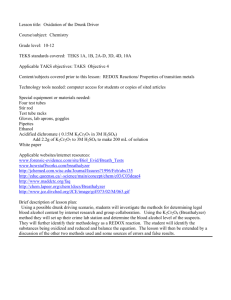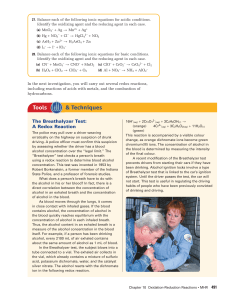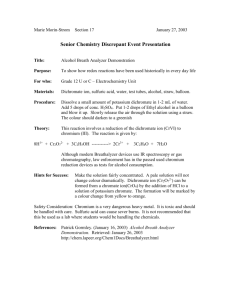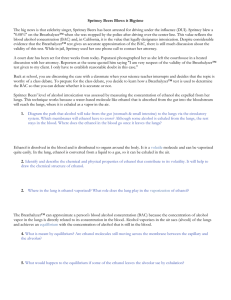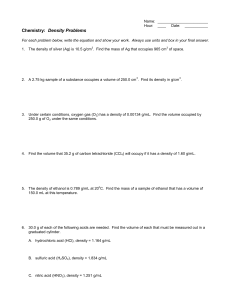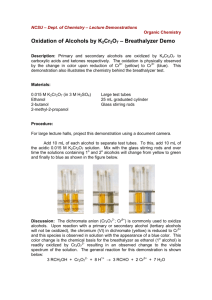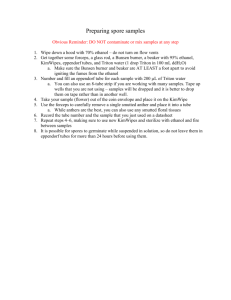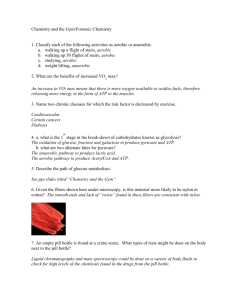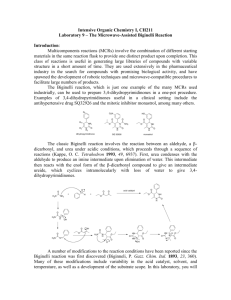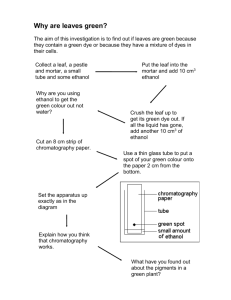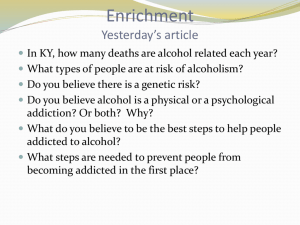Add 5 ml of breathalyzer solution (K2Cr2O7 in H2SO4
advertisement
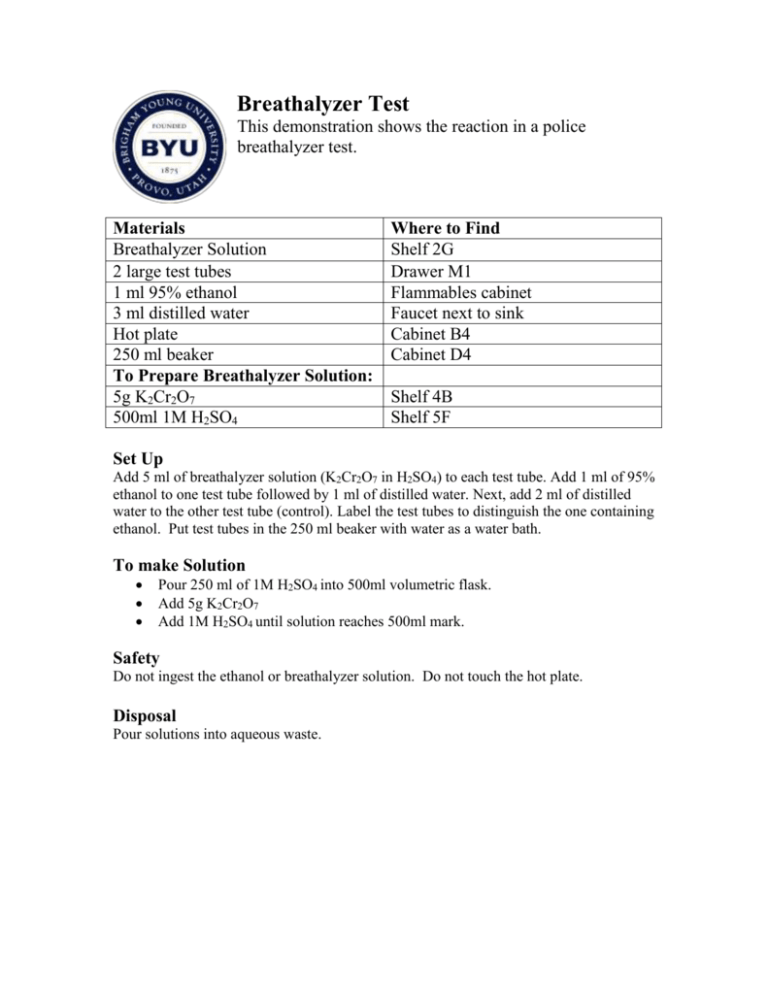
Breathalyzer Test This demonstration shows the reaction in a police breathalyzer test. Materials Breathalyzer Solution 2 large test tubes 1 ml 95% ethanol 3 ml distilled water Hot plate 250 ml beaker To Prepare Breathalyzer Solution: 5g K2Cr2O7 500ml 1M H2SO4 Where to Find Shelf 2G Drawer M1 Flammables cabinet Faucet next to sink Cabinet B4 Cabinet D4 Shelf 4B Shelf 5F Set Up Add 5 ml of breathalyzer solution (K2Cr2O7 in H2SO4) to each test tube. Add 1 ml of 95% ethanol to one test tube followed by 1 ml of distilled water. Next, add 2 ml of distilled water to the other test tube (control). Label the test tubes to distinguish the one containing ethanol. Put test tubes in the 250 ml beaker with water as a water bath. To make Solution Pour 250 ml of 1M H2SO4 into 500ml volumetric flask. Add 5g K2Cr2O7 Add 1M H2SO4 until solution reaches 500ml mark. Safety Do not ingest the ethanol or breathalyzer solution. Do not touch the hot plate. Disposal Pour solutions into aqueous waste. Professor/Lecturer Chemistry The breathalyzer is a test commonly used by the police to detect the presence of alcohol on the breath. A strip in the device contains potassium dichromate in sulfuric acid. The water vapor from the breath activates the reaction. The potassium dichromate in H2SO4 oxidizes the alcohol to an aldehyde, changing the strip’s color, thus indicating the presence of alcohol. The equation for the oxidation of alcohol to an aldehyde with potassium dichromate is: Cr2O72-(aq) + 3 C2H5OH(aq) + 8H+(aq) → 2 Cr3+(aq) + 2 C2H4O(aq) + 7 H2O(l) The alcohol reduces the dichromate ion, which has a yellow color, to Cr3+ ion, which has a green color, and the alcohol is oxidized to an aldehyde. A false positive can occur if the person receiving the breathalyzer test is diabetic, as diabetics have aldehydes in their breath. Other compounds also give false positives. Presentation Place the beaker on the hot plate to heat the solutions. The solution in the test tube with ethanol should change the solution color from yellow to green. Search Items Alcohols Redox Reactions Aldehydes Rate of Reaction Suitable for Recitation Yes
